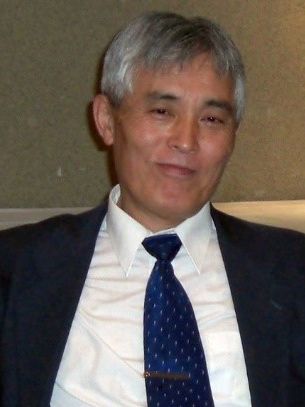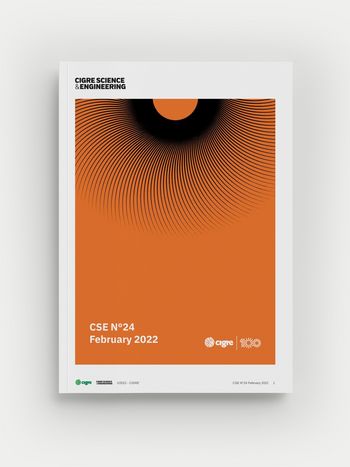Increasing women participation in the energy sector – A perspective from the CIGRE Brazilian Women in Energy
CIGRE Women in Energy (WiE) held a virtual panel discussion with the Brazilian Women in Energy on November 23, 2021 . The discussion focused on one of the key global issues: women’s inclusion in the energy transition. Women's participation in employment and leadership roles has been recognised globally, and gender inequality is considered a constraint to economic growth. According to the Applied Research Programme on Energy and Economic Growth (EEG), women account for only 20 – 25% employees in the energy sector, with even lower percentages employed in STEM roles.
EDITO: "The article below is an admirable and personal account for CIGRE Women in Energy. In places there are very candid accounts of barriers and successes worthy of being heard. We left these accounts as stated for our readership to fully understand the barriers we need to overcome. CIGRE is expanding membership, with women increasing at a more rapid rate; they have been taking Study Committee and other leadership roles in the last several years. We have more to achieve and we hope that each of us can help remove barriers, excel in our contributions, and grow further."

By Neo Mapapanyane
Neo Mapapanyane, from the CIGRE South African Women in Energy, hosted the panel discussion. Neo is a Chief Engineer at the South African utility, Eskom. She is a B5 Study Committee and NGN member. The panel was composed of the following Brazilian WIE members: Nadia Helena Gama Ribeiro de Louredo, Silvia Helena Pires, and Angelica Da Costa Oliviera Rocha, together with CIGRE WiE chairperson, Khayakazi Dioka and Brazilian WiE chairperson, Carla Damasceno. Other Brazilian WiE members who were uable to attend but participated in the questionnaire included Luiza Carijó (secretary of Brazilian C1 since 2015), Maria da Guia da Silva Brazilian (member of CIGRE since 2005), and Marta Lacorte (Convenor of Brazilian B3 since 2018).
The session began with the panelist introduction: Nadia, a CIGRE member since 2006, has been working as an independent consultant in engineering since her retirnement. She specialises in HV and EHV overhead and underground transmission line designs. Since 2015, she has been the Brazilian representative in Study Committee (SC) B1 Insulated Cables, Convenor of Brazilian B1 and member of CIGRE.
Silvia is working as a consultant since retiring after more than 25 years as a researcher at CEPEL (Research Centre of Electrical Energy). She has been a member of the SC-C3 (Power System Environmental Performance) since 2005. From 2016 to 2018, she was the Convenor of Brazilian C3 and now supports the current C3 Convenor.
Angelica is an independent consultant. Since 2018, she is a Cigre Study Committee SC-C4 member and Convenor of Brazilian C4. She has been a CIGRE member since 1996, contributing to SC-C4 and also SC-A2.
As the panel discussion focused on increasing women participation in the energy sector, the first question probed why panellists wanted to study electrical engineering. Interestingly, the response here is the same: they all studied engineering because they were good at mathematics. In addition, Silvia and Nadia indicated that they were influenced by family members who were electrical engineers at the time. Also, Silvia’s mother and many other women in her family, worked which was not very common at the time.
On the other hand, Maria, a professor at the Federal University of Maranhão, became interested in engineering in high school through physics classes because they involved laboratory experiments. From the physics classes, she became interested in reading about great inventors. The consequence was her interest in engineering.
Below are the questions and responses from the panellists and members who participated in the questionnaire.
Q1: What do you think will help increase the number of female students entering the electrical power industry/studying engineering?
Angelica: There is no easy answer to this question but if schools invited more female engineers for career exhibitions, they would be exposed to engineering earlier. I am optimistic that the number of female engineers is increasing; when I grauated, we were four and now there are many more women.
Maria (absent): Considering my experience, I think a factor of great importance is encouraging women from high school through classes and lectures on the outstanding contributions of women in engineering.
Nadia: At my age (68 years old), I realise that many women are interested in engineering, but they are not always receptive to the study of electrical systems. My daughter is an engineer, but she opted for the mechanical side. I could not attract her to the electrical engineering field. I also see many young women opting for civil engineering, maybe because they will get more opportunities. In Brazil, where I specialise in power cable systems, I know only one single female specialist. In SC B1, only 12% of experts are women!
Luiza (absent): The number of female engineers entering the energy industry/studying engineering has grown in recent decades; increasing information about the various types of work in the electrical engineering field could increase women's interest, as would reducing the wage gap.
Q2: Why do you think some countries have made significant progress in increasing gender diversity in the electrical engineering industry, while others have remained stagnant?
Silvia: I think cultural and social aspects make a significant difference. There are countries where women have achieved freedom of expression and overturned many gender-related issues. The reason is that they have legislation relating to women rights (e.g. maternity leave and childcare assistance).
Maria (absent): I think this happens due to economic and social problems and the lack of equitable public policies for municipalities and states.
Marta (absent): [I think this is} due to the reduced influence of women only as mothers and responsible for household.
Q3: Do you have a female engineer mentor or someone you have looked up to throughout your career so far?
Silvia: When I was an intern, I was lucky to have an exceptional woman engineer as a leader. She was married, had children, and was successful and respected, and she also took special care of her coworkers. So, I always tried to follow her example.
Luiza (absent): I did not have a specific mentor, but I have admired several female engineers throughout my career. Fortunately, we have several engineers in Brazil in the electrical engineering area with exceptional skills.
Q4: Many women do not remain in the engineering industry because the environment does not favour them. What can be changed or prioritised to create a conducive environment for women in engineering?
Nadia: Something that seems repetitive for all of us is the impression that women engineers are not sufficiently competent, dedicated, and responsible. It is up to women to change this. On the other hand, it still weighs much that women can become mothers. Such condition is the preponderant factor that hinders, and very much, our professional performance. The reality of being a mother imposes on us two paths of whole and total dedication.
Silvia: In my opinion, a significant issue for most women is reconciling their children's education with dedication to work. Alternatives such as flexible hours, home office, more extended maternity leave, help to pay for childcare or on-the-job day-care would be very welcome measures to improve the work environment. Another important point is to choose a life partner who shares the housework!
Q5: Over and above external barriers, most women struggle with internal barriers (self-doubt) mostly because of their background. So how can women be assisted to overcome internal barriers?
Angelica: Our internal barriers are natural. Often, we feel guilty for not investing time in taking care of our families. Many years ago, when I was starting my career, my son was 4-years old, and I had to go to a meeting in Rio de Janero. Kindergarten was closed and my son was home with the nanny; around 3:00 pm they went our and were not back when I arrived late in the evening. The house was empty, and I panicked, I called my husband, but he didn’t know their whereabouts either. In the end, everything was fine but at that time I started asking myself ‘Why am I working’?
Angelica also shared about other jobs that women manage. For example, her sister is a pediatrician who has structured her working hours. She is with her kids in the morning and only works in the afternoon. However, this is quite difficult in engineering as it demands a lot. Nadia also added that we must first be mothers and professionals second. Our main task is being mothers, and it is not easy to be mothers and good engineers simultaneously. It helps if you have a good husband and a good nanny because we travel a lot, Silvia added.
Maria (absent): The lack of confidence in becoming an engineer and being active in the profession arose from that past culture that engineering was a man’s profession. That is the past and we see outstanding contributions made by women in engineering over the years. This should serve as a vital point for women to face their fears and indecisions.
Carla: In the past men were not so active in helping their wives but it seems that the new generation starts to contribute more. So, I think that men’s increased family participation helps, plus educational institutions must have inclusion policies to teach young boys to share the household tasks with women. In addition, the industries must show workers that inclusion is necessary, and that men and women can work together towards a better professional result.
Khaya: I travel a lot locally and internationally, and we need to support each other. We are not only dealing with families that have both parents, but we also need to remember that there are single parents. Fortunately, my mother can assist me with my daughters when I have to travel for work. My husband is very supportive and good with his daughters too. In our women empowerment sessions, we need to include men to become part of this because they need to understand our struggles and what they need to do to support women.
Unfortunately, this is not the case for many women as they spend more and more time on the road and spend less time with their children. Carla admitted that she did not get the chance to teach her boys because she travelled a lot in Brazil and internationally. She had no time, and many mothers could attest to this in the early years of their careers. They get to spend less time with their children.
Q6: What can CIGRE and CIGRE WiE do to support women in the power industry?
A response from the Brazilian WiE chairperson was that they are doing research on this topic to get women’s perspective. The results will be shared in a future Brazilian Webinar organized by the female engineers of Brazilian C3. In addition, Brazilian National Committee (BR NC) are developing many national level activities to stimulate women participation in CIGRE working groups. The next Brazilian Women Forum, 3rd edition, will take place on May 17, 2022 during the major Latin America Seminar - Generation, Transmission and Distribution (SNPTEE) promoted by BR NC Its members devote a great deal of time to organising these activities.
All Study Committee Conveners are embrancing this cause encouraging women to participate in CIGRE working groups, and one good example is the work done until now by the chairpenson of SC-B1. He presents these statistics showing the number of women in SC-B1 and its working groups.
The figures are looking much better now. Overall, CIGRE has many young women engineers with an average age of 37 years. CIGRE will endeavour to reach at least 50% of women representation in the SCs.
CIGRE makes an effort to include women, and CIGRE-Brazil too - there are four female conveners of Brazilien Study Committes, three in Technical Advisory Group teams, and one BR NC Corporate Matters Director.
When Phillipe Adam said, “Please encourage women and young engineers to participate”, the working group conveners were urged to choose a woman, young or not, whenever possible. Khaya introduced the Women in Engineering award for Women in Energy, which is very encouraging. Until then, it was only Angelica Rocha who had received outstanding awards.
Interestingly, CIGRE has many women with different cultures and challenges who are treated differently in various parts of the world. Each country has unique barriers to face. Khaya mentioned that CIGRE is working to have more women involved to deal with these cultural differences. All 61 national committees should address these issues in their own countries, as it is often a socio-cultural issues, yet see how other countries are evolving. Finally, men must recognise that women are technically and scientifically capable.
The author would like to acknowledge the work done by Maddy Binet from CIGRE Australia in preparation for this interview.



